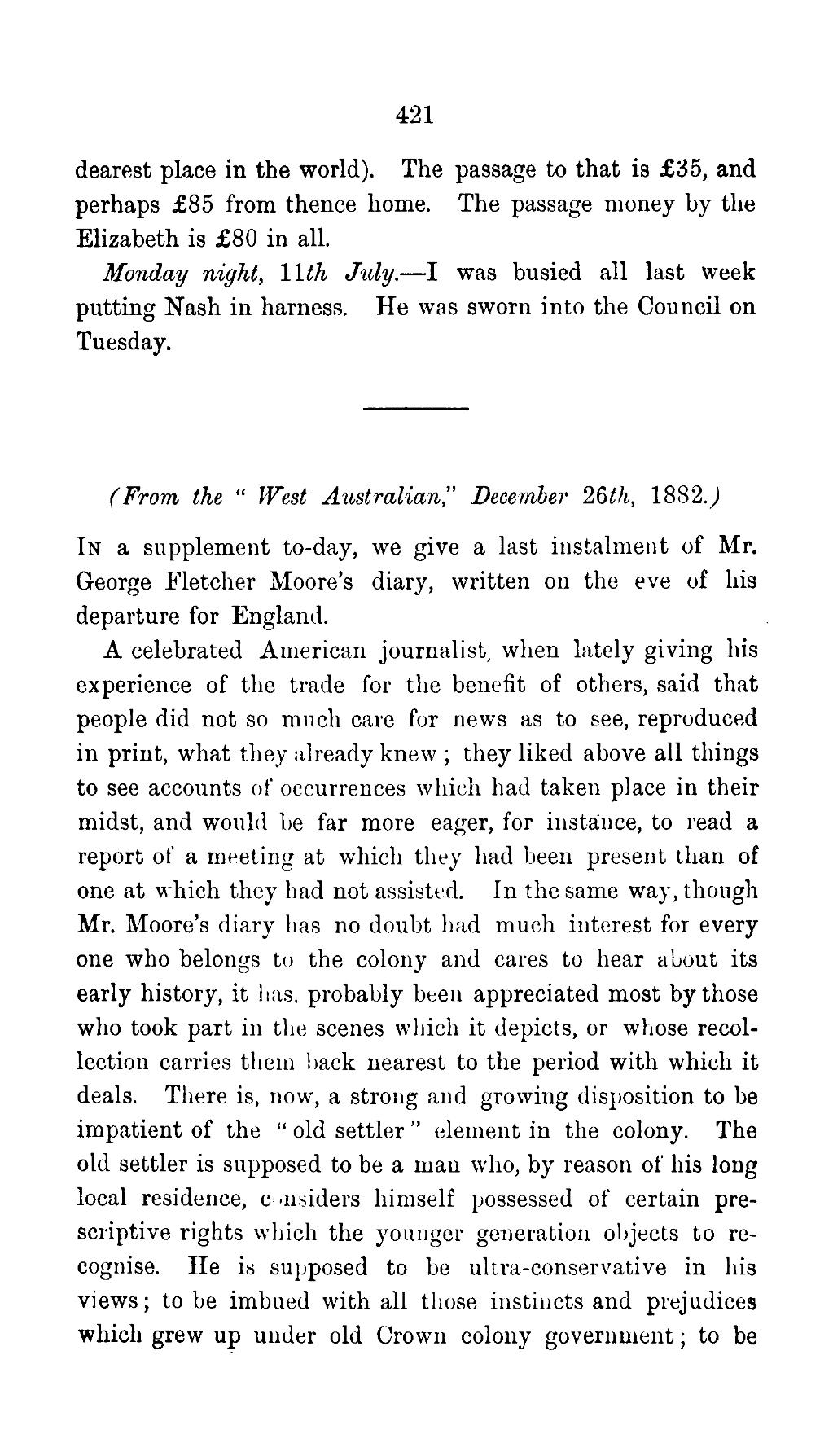421
dearest place in the world). The passage to that is £35, and perhaps £85 from thence home. The passage money by the Elizabeth is £80 in all.
Monday night, 11th July.—I was busied all last week putting Nash in harness. He was sworn into the Council on Tuesday.
(From the "West Australian," December 26th, 1882).
In a supplement to-day, we give a last instalment of Mr. George Fletcher Moore's diary, written on the eve of his departure for England.
A celebrated American journalist, when lately giving his experience of the trade for the benefit of others, said that people did not so much care for news as to see, reproduced in print, what they already knew; they liked above all things to see accounts of occurrences which had taken place in their midst, and would be far more eager, for instance, to read a report of a meeting at which they had been present than of one at which they had not assisted. In the same way, though Mr. Moore's diary has no doubt had much interest for every one who belongs to the colony and cares to hear about its early history, it has, probably been appreciated most by those who took part in the scenes which it depicts, or whose recollection carries them back nearest to the period with which it deals. There is, now, a strong and growing disposition to be impatient of the "old settler" element in the colony. The old settler is supposed to be a man who, by reason of his long local residence, considers himself possessed of certain prescriptive rights which the younger generation objects to recognise. He is supposed to be ultra-conservative in his views; to be imbued with all those instincts and prejudices which grew up under old Crown colony government; to be

